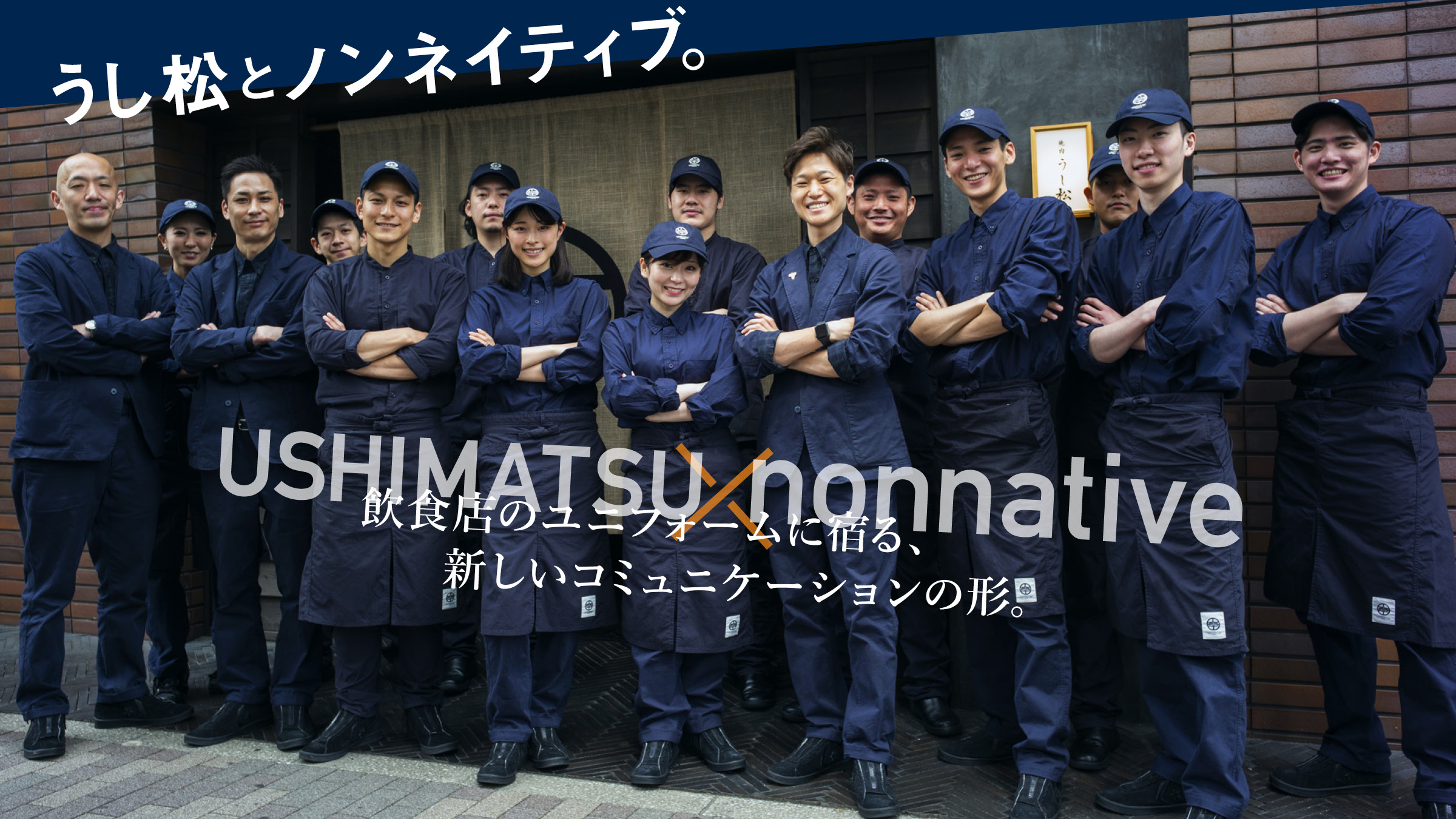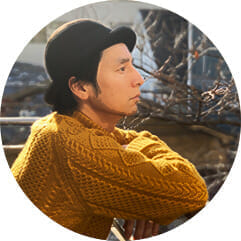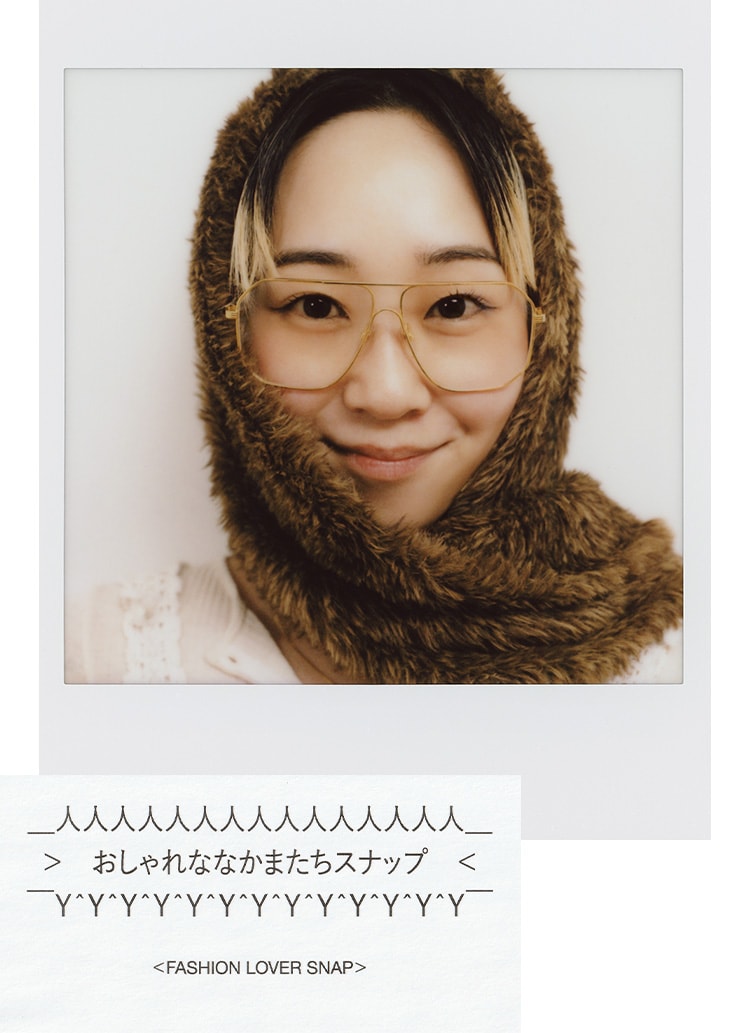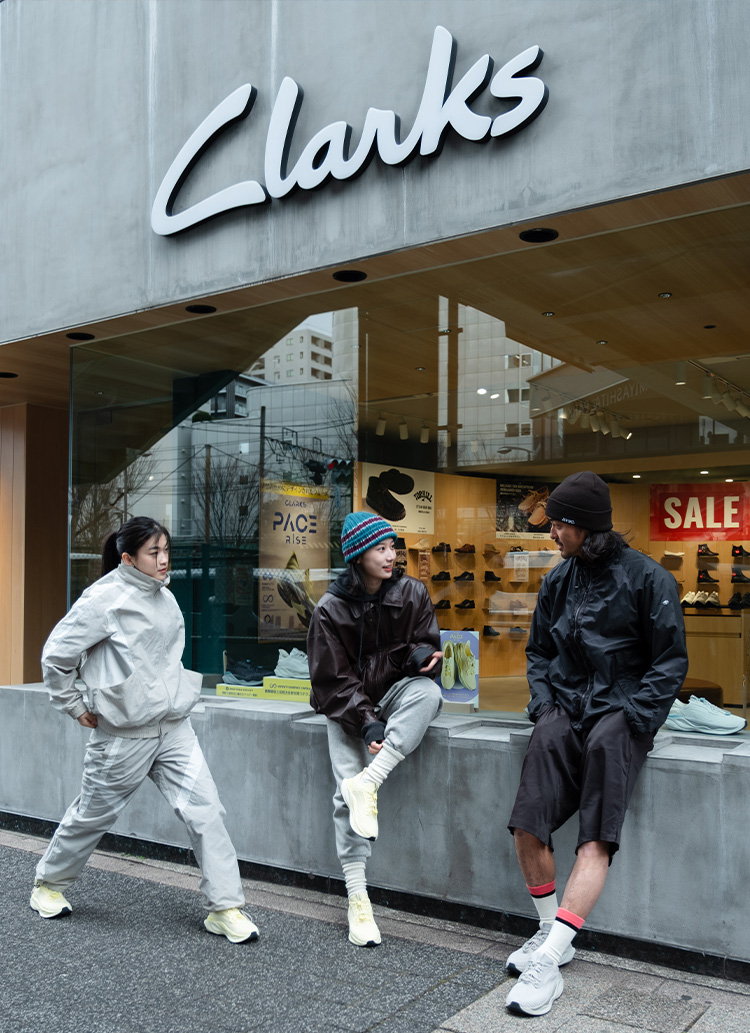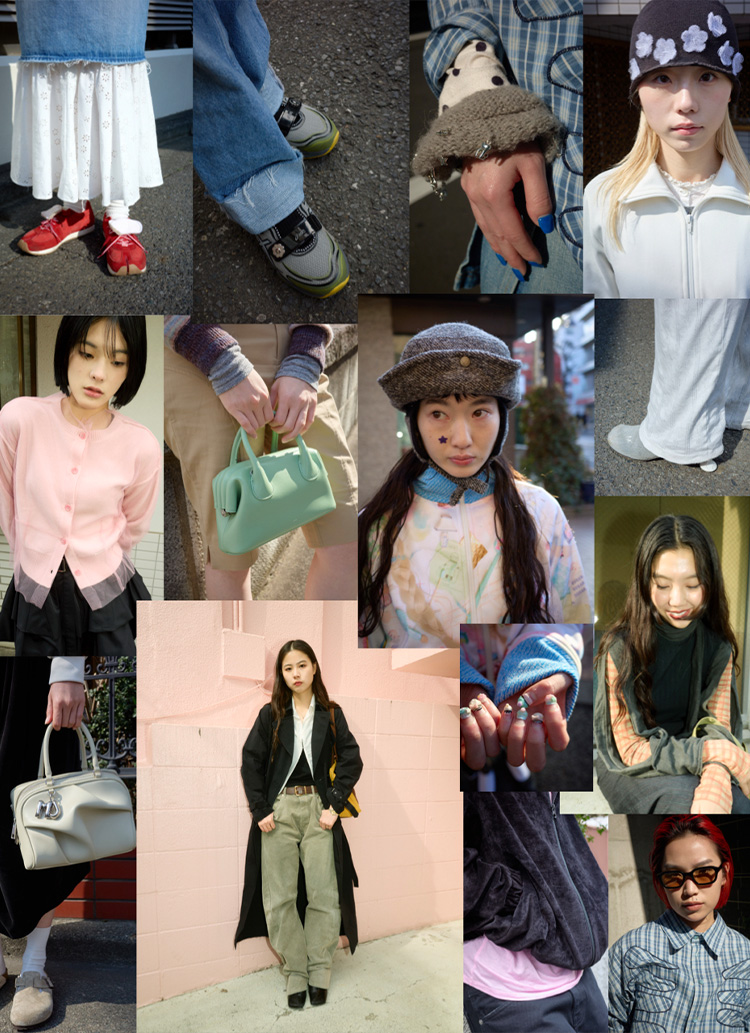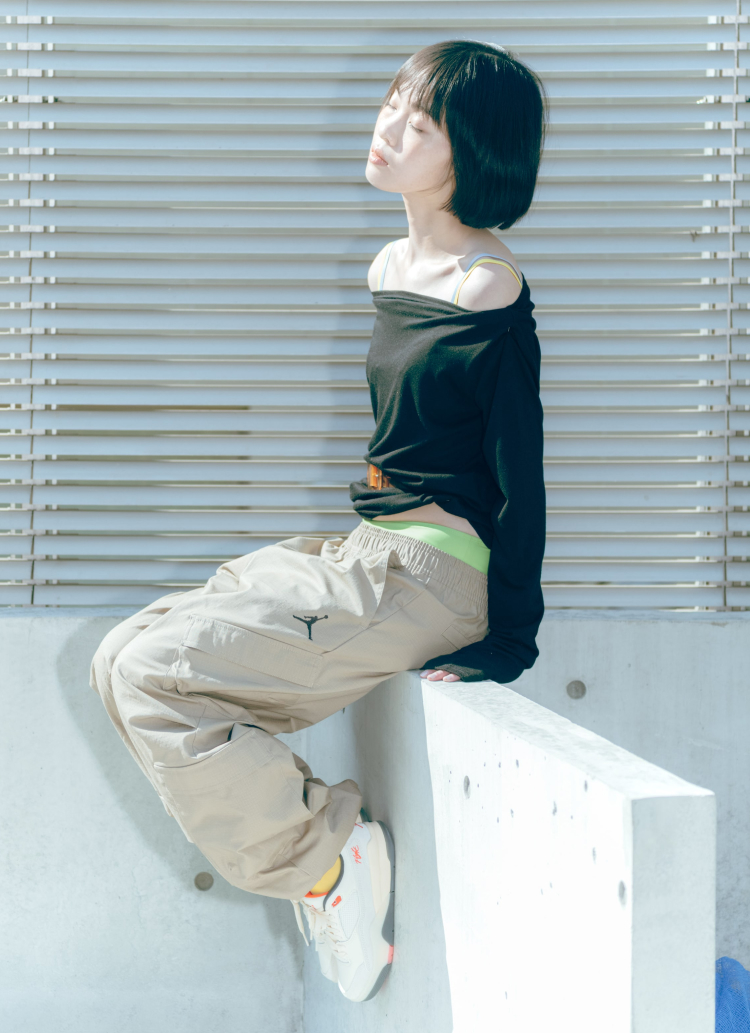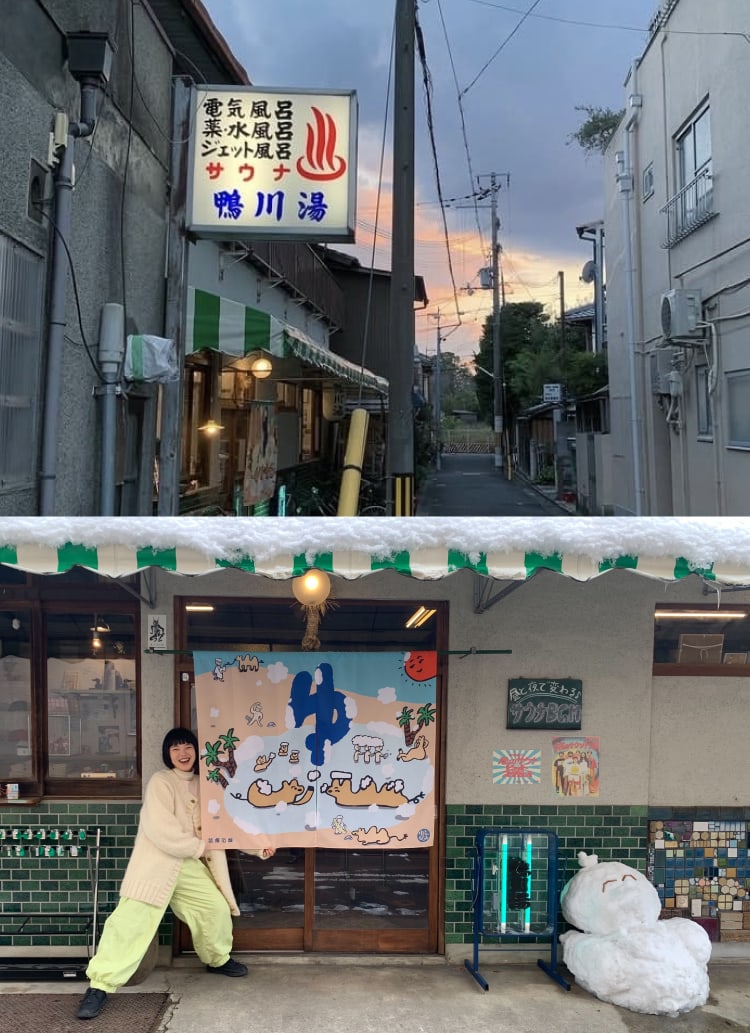It's good because we don't sell it.
By the way, this is made of cotton, isn't it? In terms of functionality, what can you tell us about it?
Fujii: It's not so much a matter of function as it is a matter of range of motion. Suits have vertical sleeves, so it is difficult to raise the arms in front or above the body. But our jackets have sleeves that swing forward, so it is easy to raise the arms. Or rather, you only put your arms out in front of you. It is also important that the jacket looks good when it is lowered. For this reason, darts are placed in appropriate positions.
I see that you have several different items for this year's uniforms.
Fujii: There is a tailored jacket, a work shirt-like one, and then a button-down shirt. The kitchen staff has aprons with easy pants, because belts would get in the way. They also wear caps to protect their hair. The floor staff is in a chino setup and wears a belt.
I see, so there is a difference between the kitchen and the hall.
Fujii: I think all the men's fashion I do comes from uniforms. Whether it is work or military. But military has the role of protecting lives, so it is always evolving. There are a lot of bids. When a company decides to supply a product to the U.S. military, it can become very large at once. Even outdoor brands provide uniforms to the military, and they do a tremendous amount of research for this purpose. However, uniforms for food and beverage are not life-threatening, so "this is fine" is accepted.
Kurita: After all, it's all about atmosphere, isn't it? Japanese, Western, and Chinese are all associated with this kind of image. Chinese chefs move in this way, so we don't have uniforms that look like this.
I see what you mean. Did you decide on the color navy right away?
Fujii: Yes, that's right. First of all, I thought it should not be black. Olive would be a bit different. So navy was the only choice. It's the color that makes the best impression on people. It makes people look serious. Japanese people definitely look good in navy.

By the way, what was the reaction from customers?
Hirakubo: I received feedback that I had changed immediately. When I explain that the clothes are actually from Non-Native, the first thing they say is, "I want them! I think that's the first thing they say. In any case, the number of people saying, "You look so cool" has increased tremendously. I am surprised at how much a single uniform can change a person's impression of us.

Fujii: You don't often hear people say, "That restaurant's uniforms are cool, aren't they? In that sense, I am glad we did it this time. Also, isn't it cool that they don't sell them? (Laughs) When we were making the uniforms, there was talk that they should be good enough to sell, but I thought it would be better if they were for the staff only.

I see. It seems that there are many new possibilities for restaurant merchandising.
Kurita: When I go abroad, I also buy T-shirts with the logo as souvenirs when I go to restaurants I like, so I think it would be a good idea to sell them only at overseas stores.
Fujii: Yes, I think so. USHIMATSU NEWYORK" and so on. Then, artists will follow, and it will expand again.



